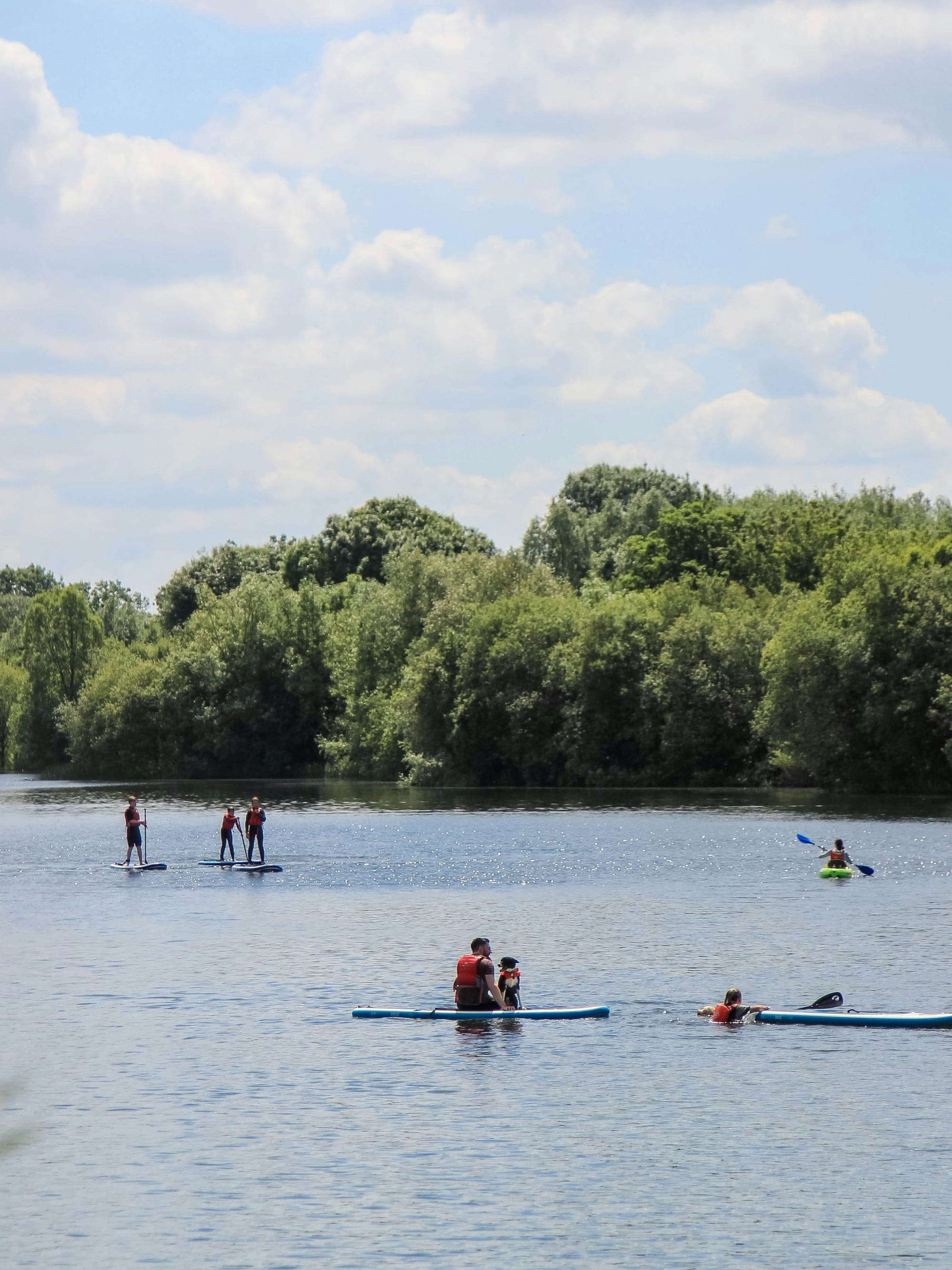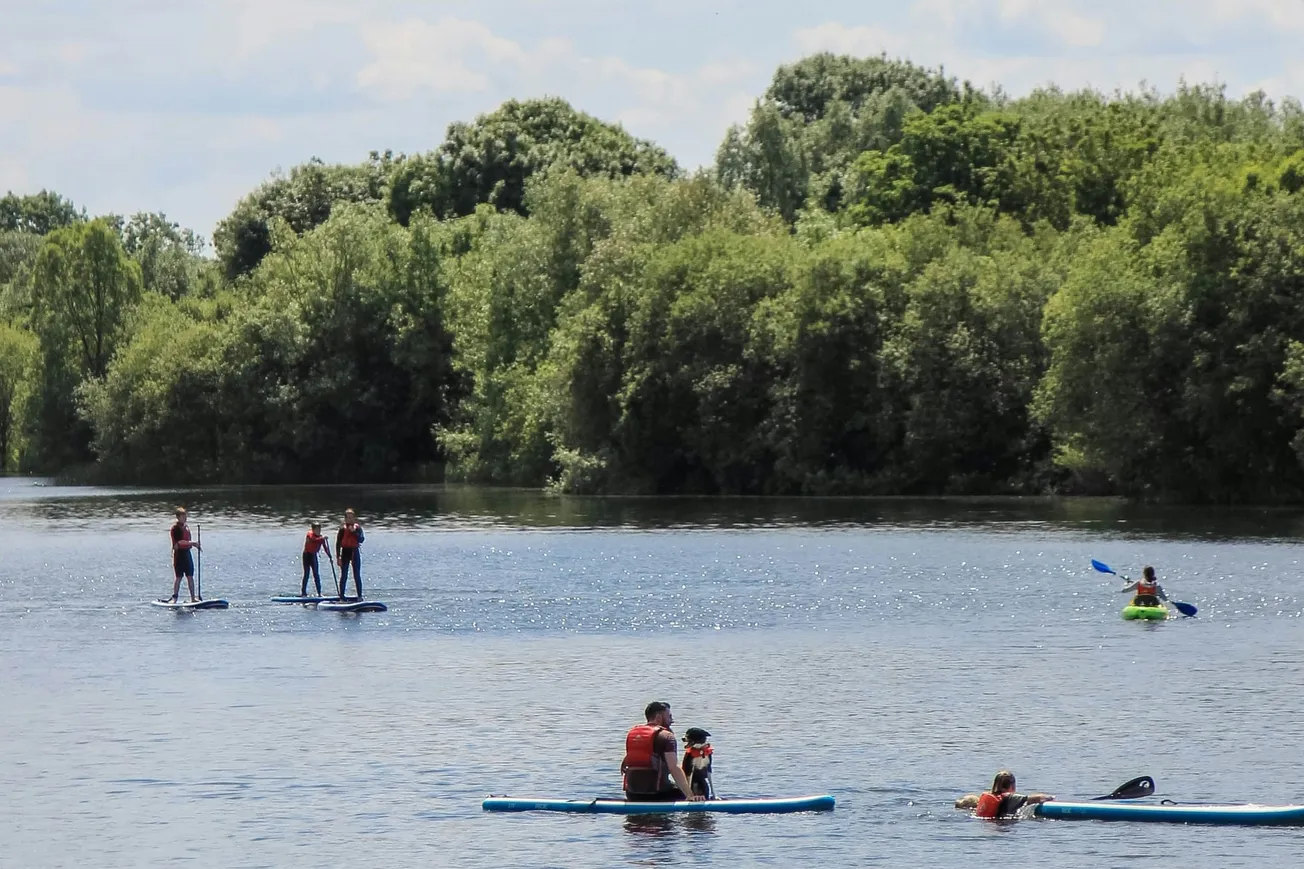Cradled in rustic beauty at the edge of the peaks, the brow of Wharncliffe Edge sits on one side and pine woodland leading up to the Stocksbridge Moors on the other. Sky and water blend as you flow towards the western edge of Underbank Reservoir, the roar of the Stocksbridge Bypass softened by beech trees. You are soothed by the trickle of water as it meets its journey’s end off the fields.
If you paddle your way to the reservoir’s source, you’ll meet the Porter of the Don that feeds it. Here, among the reeds, you are encased in a cocoon of nature's stillness, the kind that slows the heart and deepens the breath. I’ve paddled out with restless ADHD kids to this spot, and have taken moments of silence here with women from a local refuge. This setting always invited peace into its visitors, in a way that only water can.
This isn’t just for outdoor enthusiasts — the lure of water is inherent; so much so, researchers have called the phenomena the ‘blue mind’. Marine biologist Dr Wallace Nichols coined the term after a life devoted to studying sea turtles and in turn noticing the ‘zen’ like effects of moving water on the human psyche. He believes that because we evolved from the water and are mostly made up of it, we know deeply, albeit unconsciously, that we are a part of it.
Whatever the mechanism, it works. A review of 50 studies conducted around the world on how health may be positively affected by exposure to natural water sources concluded that living close to “blue spaces” positively impacted the amount of physical activity people did and provided more restoration from psychological stress than those who lived further away. Imaging of the human brain has also found that our ‘happy hormones’ increase the closer we get to water.

But water-lovers like me have noticed a worrying trend. Free and legal access to open water is becoming ever more challenging. Now, if I visit Underbank reservoir, I am greeted by a permanently padlocked gate, new CCTV, and menacing pictures of guard dogs. Since Underbank Activity Centre — which allowed people to launch their own craft at the site — left, it’s become inaccessible to bring your own craft, despite ten years where paddlers were welcomed onto the reservoir with no known incidents.
This story is free to read. You just need to sign up to join The Tribune's mailling list. And why wouldn't you? You'll get our journalism in your inbox the second we publish, keeping up to date on this and all our stories. No card details required.
Join the ListAlready have an account? Sign In
Comments
How to comment:
If you are already a member,
click here to sign in
and leave a comment.
If you aren't a member,
sign up here
to be able to leave a comment.
To add your photo, click here to create a profile on Gravatar.







